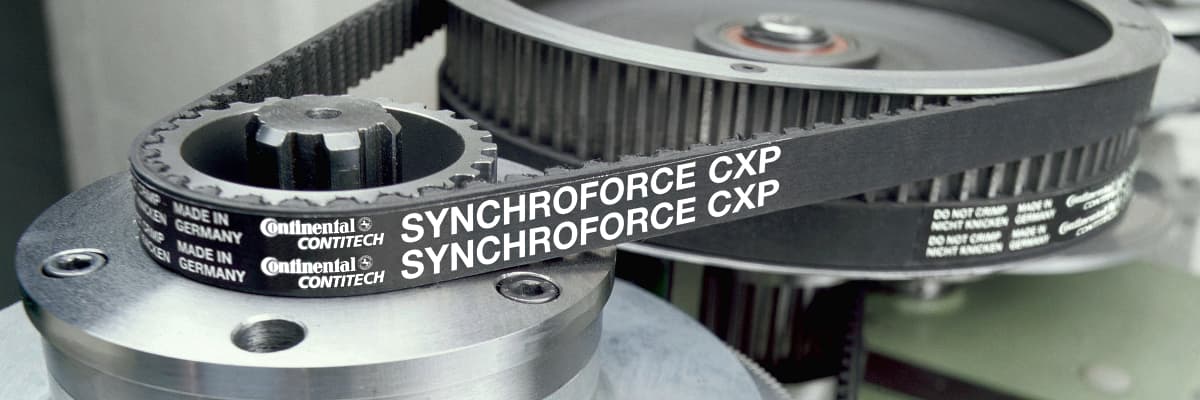TRASCO and TRASCO ES Flexible Couplings Now Available in Eshop
Recently, we expanded our Eshop assortment with two categories of flexible couplings from SIT, a leading Italian manufacturer.
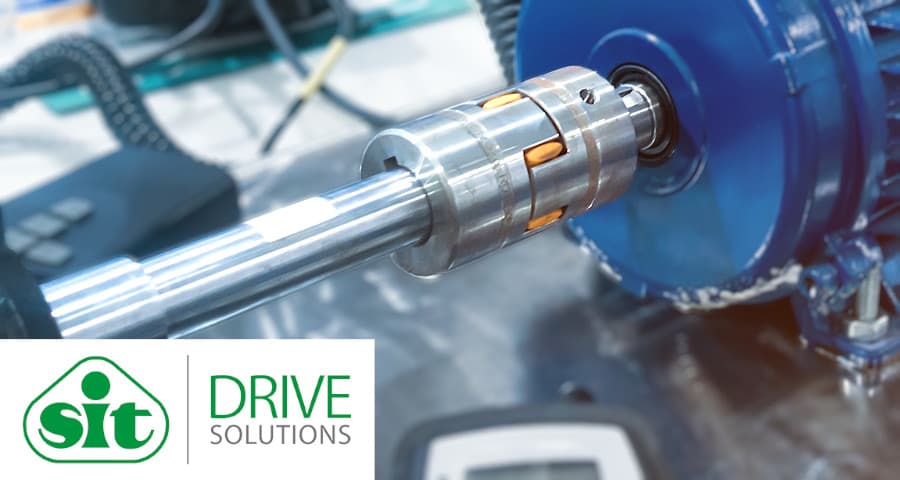
These are both standard SIT TRASCO flexible couplings and SIT TRASCO ES zero-backlash couplings. The couplings are designed as a kit, which is also reflected in the structure of both categories. Each category is then further divided into subcategories according to different types of compatible components: hubs, spacers and elastic elements.
Zero-Backlash SIT TRASCO ES Couplings
The compact design of TRASCO ES is the optimal choice for applications requiring precise movement. Typical applications include servomotors, sliding table drives, machine tool spindles, drill and grinding mandrel drives, ball screws, as well as motors in robotics, automation and fine mechanics.
Zero-Backlash TRASCO ES Couplings in the TYMA CZ Eshop
As well as these couplings from the Italian manufacturer, we also offer regular TRASCO flexible couplings in the Eshop.
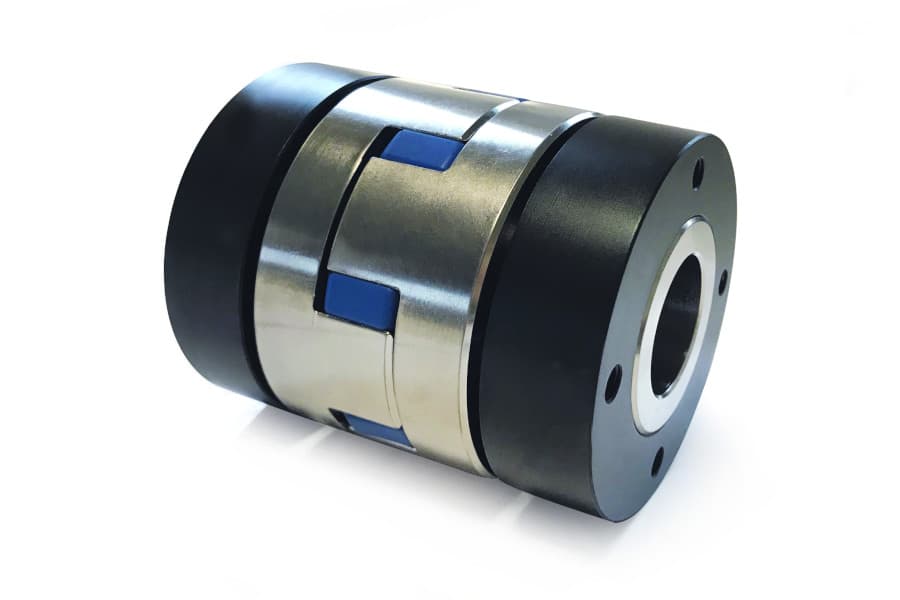
Unlike regular TRASCO shaft couplings, the TRASCO ES zero-backlash shaft coupling uses special polyurethane elastic elements that are made for insertion into hubs with a slight preload. The involute shape of the coupling teeth and the elastic element ensure uniform compression and thus zero backlash, which characterizes the power transmission of these couplings. Zero backlash ensures that the coupling remains torsionally rigid for the specified load range, although it allows absorption of radial, angular and axial misalignments as well as unwanted vibrations. The wide contact area of the elastic element maintains low contact pressure. The teeth of the element can then be overloaded many times without causing wear or permanent deformation.
High operating temperatures cause the elastic element to degrade if it is not properly selected, losing much of its elasticity, which significantly reduces the ability to handle torque. This risk must therefore be taken into account when selecting a coupling and the operating temperature must be carefully considered.
The torque range for TRASCO ES couplings is from 0.7 Nm to 4,800 Nm, with a maximum speed of up to 40,000 rpm depending on coupling size.
SIT TRASCO ES Advantages
- "Zero backlash" motion transmission
- Up to 80% vibration damping from the motor shaft
- Low heat conductivity
- Easy and quick mounting
- Perfect weight distribution and balance, especially for types with GESA and GESAP hubs (see below)
- Low moment of inertia due to compact design and types of materials used
Components of TRASCO ES Couplings
The TRASCO ES product line offers a wide range of components.
Hubs
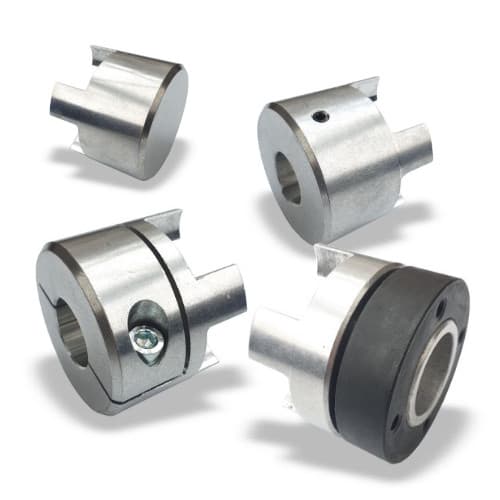
High-precision hubs with front teeth are manufactured from high-quality aluminium, steel or cast iron depending on type and size. The following types can be found in the Eshop:
-
GESP – hubs in unbored design
-
GESF – hubs with finished H7 bore and keyway according to DIN 6885
-
GESM – hubs with a clamping joint and tightening screw
-
GESMC – compact clamping hubs with reduced overall length
-
GESA – hubs with an integrated clamping tapered element with a finished bore
-
GESAP – shrink hubs with a finished bore according to DIN 69002
Spacers
Center parts into which the elastic elements with hubs are inserted on both sides.
-
GESS – spacers for TRASCO ES 7–65 couplings
Elastic Elements
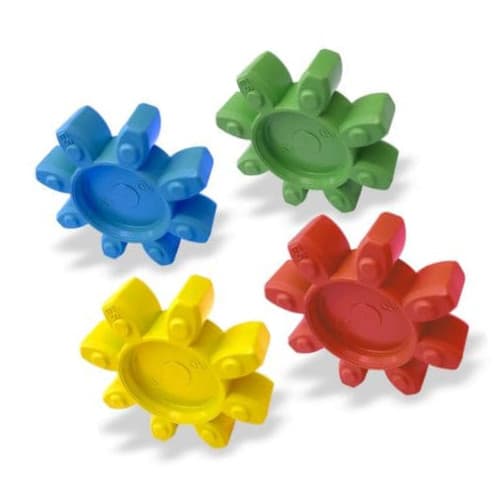
AES polyurethane star-shaped components are dimensioned for temperatures up to +120 °C, are oil and chemical resistant and electrically conductive. Available in different colors according to their hardness:
- Blue
-
special softer elements for low temperatures up to −50 °C
-
Hardness: 80 Shore A
-
Operating temperature range: from −50 °C to +80 °C
- Yellow
-
Standard elements of lower hardness and temperature resistance up to −40 °C
-
Hardness: 92 Shore A
-
Operating temperature range: from −40 °C to +90 °C
-
Red
-
Most commonly used elements of medium hardness and temperature resistance
-
Hardness: 98 Shore A
-
Operating temperature range: from −30 °C to +90 °C
-
Green
-
Harder elements for higher torque transmission and temperatures up to +110 °C, short-term up to +120 °C
-
Hardness: 64 Shore D
-
Operating temperature range: from −30 °C to +110 °C
